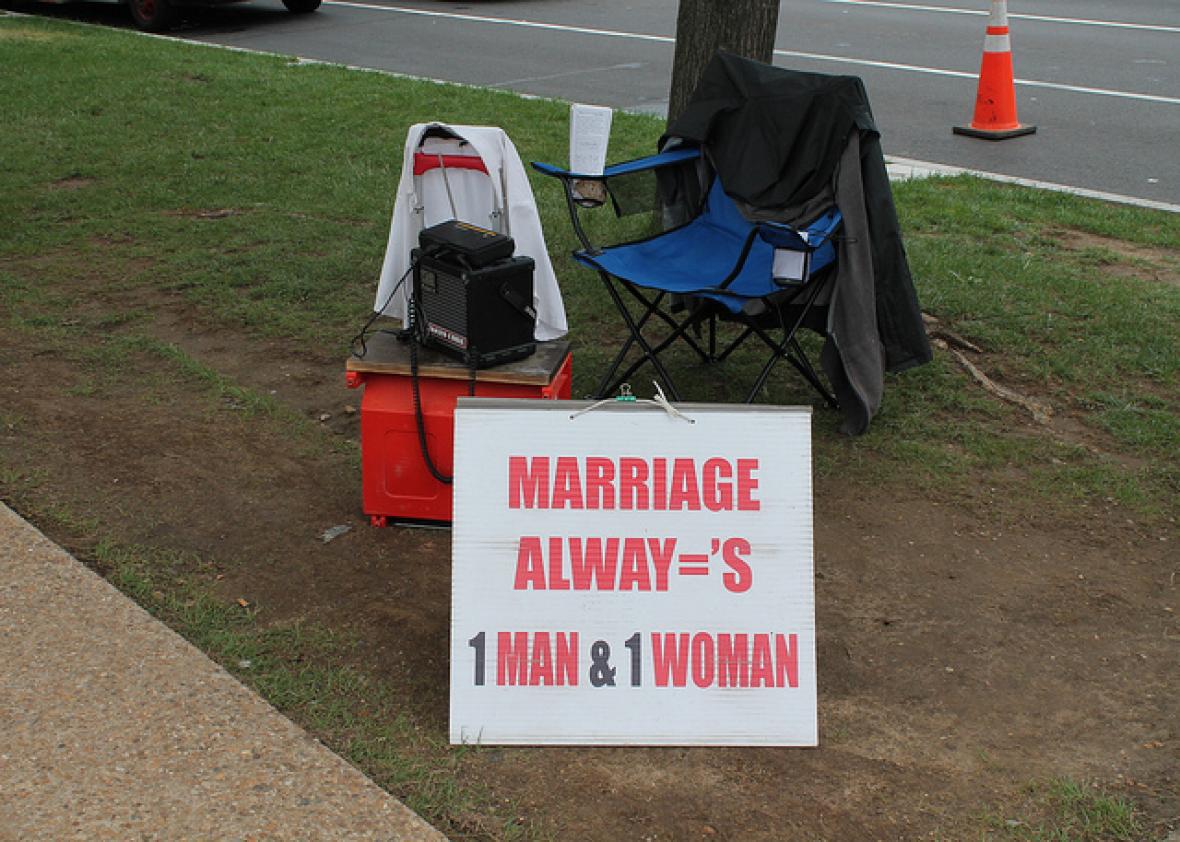One of the really fun things about being gay is that you constantly get to hear people who don’t know you—and know virtually nothing about you—condemn your identity as fraudulent and immoral. The Supreme Court recently held that the government can’t single out and demean gay people anymore. But that doesn’t mean the religious right won’t stop trying. Post-Obergefell, it looks like we’re in for anti-gay rants like this one, from the National Review’s chief revanchist, David French:
From the very beginning, the sexual revolution has been about sexual liberty, not identity, with the language of identity adopted as a political tactic. … The bottom line is that sexual expression is always about human choice. … [I]f we’re finally getting honest—and labeling sexual acts as moral choices—then there’s less grounds for punishing those people and institutions who make different moral choices, like Christian colleges, student groups, and business owners.
French is writing in response to a Guardian article penned by a polyamory advocate who seeks to undermine the science behind a biological basis for homosexuality, perhaps in order to link it more closely to sexual choices like polyamory. That science, by the way, is quite strong and gets stronger with each new study. But French’s credulous reliance on the inaccurate scientific views of a polyamorous gay journalist is not what interests me. Rather, his piece is fascinating for the peek it provides into the post-Obergefell anti-gay battle plan: a retreat from arguments against judicial intervention—which were pretext to begin with—and a renewed effort to persuade Americans that gay people are fundamentally immoral because they have gay sex.
This plan intertwines with the already notorious campaign for Christians to obtain a special right to discriminate against gay people. But it differs in fundamental ways. On its own, the “religious liberty” crusade acknowledges a defeat on one front of the culture wars—the effort to keep gay people stigmatized and excluded from mainstream society. But culture warriors like French need to keep their troops’ hope alive. So while Ross Douthat and his ilk withdraw into the religious liberty redoubt, French et al. are charging up the hill to fight back increasingly pro-gay public sentiment.
In earlier articles, French hinted at this tactic, declaring that “cultural conservatives have barely begun to fight.” His thesis is that homosexuality is like abortion: an evil to be combatted, anathema to basic Christian values. Gay marriage is wrong, he suggests, because gay sex is wrong—an immoral choice, not an aspect of an immutable identity. Gay people could choose to remain celibate. Instead, they choose to have sex—and demand that society and the state honor that choice by affording their relationships equal dignity. French hopes to rouse the shrinking subset of Americans who still think gay sex is nothing more than sinful debauchery.
The problem with this gambit is that it only works within deeply intolerant pockets of conservative Christianity. In his pieces, French often speaks of a “truth” that gay rights violate. Dig deep enough, and you’ll find that this truth is the Gospel, as interpreted in a strictly anti-gay manner. For evangelical Christians like French, that’s a fine truth to live by. But French does not (and cannot) explain why his own truth should be codified into law in a country whose constitution separates church from state.
While French’s attempt to reinvigorate the moral case against homosexuality might inspire other anti-gay Christians, then, it seems unlikely to arouse much enthusiasm among the general public. In his latest piece, French states that if “we’re finally being honest,” we must label “sexual acts as moral choices.” Take that at face value, and assume that every time a married man has sex with his husband, he’s making the moral choice to share intimacy in the confines of a marital bond. Why should French intervene in that “moral choice”? Why should the government? For French and his allies, the answer to these questions is that an anti-gay interpretation of the Bible says so. Sixty percent of the country finds that answer unsatisfactory. No matter how valiantly culture warriors fight against the tide of equality, that number will only go up.
